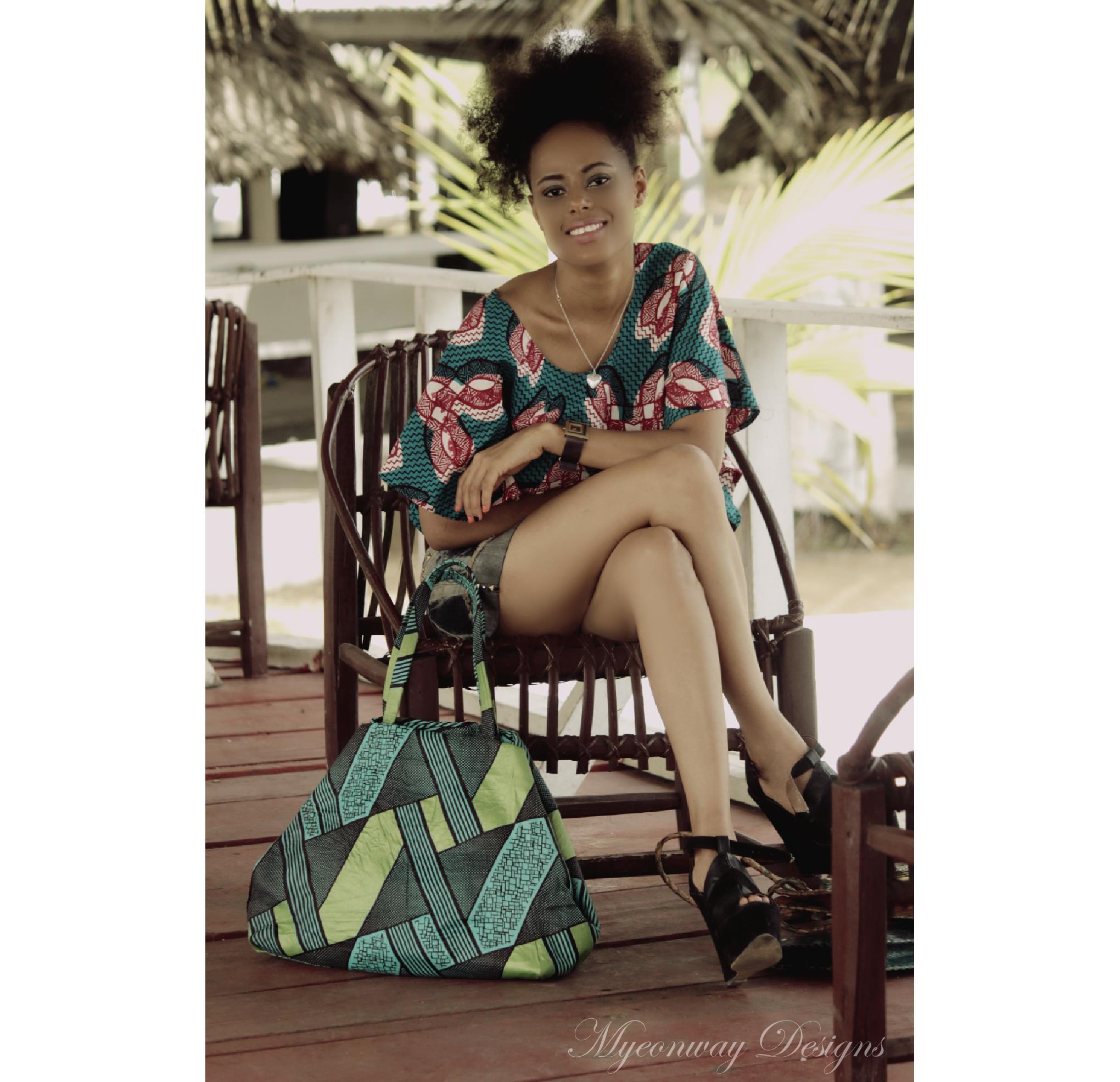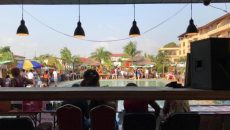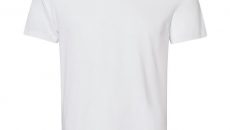There have been many changes in fashion over the years, and one of the major changes is that boutiques no longer rely solely on imports from China, due to consumer demand for African-made and inspired wear.
A recent trend observed in Liberia is the use of African cloth. It is now a fashion statement as well as a symbol of tradition. Western fashion styles have been infused and duplicated with Ankara, a vibrant cotton fabric in tribal print, created using an Indonesian wax-resist dyeing technique called batik.
The fabric is known as “Lappa cloth†or “African cloth†in Liberia. Although it was originally intended for the Indonesian market, West Africans have since adopted the fabric. African Lappa design is so versatile and irresistible that it has caused a decline in Chinese manufactured clothing.
Retail outlets and fashion designers now have ready-to-wear African print clothing, made in Liberia, on display around Monrovia. Looking for quality Lappa cloth designs? Look no further than Camp Johnson Road or in Sinkor, Liberia’s version of London Oxford Circus and Los Angeles Rodeo Drive.
There are schools, universities, and government agencies in Liberia which require students to wear African clothes at least once a week. Some Liberian businesses have traded imported staff uniforms for chic African print clothing designs. Social media has also played a major role: Instagram and Facebook models have made Ankara designs acceptable and cool.
The cloth is unique and is not limited to the working class. It is accessible and affordable, making it more appealing. The 2015 Monrovia Fashion Week was dominated by Ankara prints – young entrepreneurs, fashion designers and socialites showed off their trendsetting garments at the exclusive event. The print is commonly worn in offices, nightclubs, resorts and on beaches in Monrovia, as Liberia’s fashion and social scenes go hand-in-hand.
Welhemenia Cooper is a Liberian Instagram model, fashion designer, natural hair enthusiast and blogger. She founded the startup African fashion brand, Myeonway Designs. We interviewed Cooper to get her insights on the Liberian fashion industry. This interview has been edited for clarity.
In your opinion, is Liberia’s Fashion industry competitive?
In my opinion not yet. Not like Nigeria, Ghana, or other parts of Africa, although those markets have their limitations and hindrances too. I think there are fewer designers in Liberia because there are even fewer consumers in the fashion industry, not including the diaspora.
Right now, Liberian designers are not encouraged to get into the business because that alone cannot sustain them. You have to have a main job, where you get your income while you pursue your dreams and passion. It’s like that for almost every designer I know, including me.
Also, consider that Liberia is a very small country, with less than five million people, and out of those, the Monrovia region is the hub of all things fashion with no more than two million residents.
And let’s not forget, fashion isn’t for everyone. Some people do not care about fashion, especially African fashion, and that is fine. Some say that African prints, also known as Ankara, are too bright, too bold, and too wild.
We need exponential growth in the fashion industry, but we do not have the consumers for that growth, nor do we have the ways or means to import materials needed for our products or to export our products and services. Ultimately, there is room for growth, immense growth.
Who are your favorite Liberian-based fashion designers and why?
This is a tough one. Over the years, I have gotten to know some very talented Liberian-based designers.
Fanta Kamara is literally unheard of, but she does amazing work. Sean Gibson – he has a vision and pays attention to details. Laurice Monsio Saba is someone who’s great with cuts and finishing.
CAM Fashion is an up-and-coming brand. I just got a few things made by the designer, and I love them. They’re very fashionable. Ma-Sue by Korla Girl is another emerging brand that is making strides in the fashion industry. Menekemu is my favorite t-shirt brand. His t-shirts are dope and make a statement.
What prompted you to start Myeonway Designs?
I believe Myeonway Designs has always been a part of me. I have always been fascinated by fashion and always wanted to start a brand that exudes confidence, elegance, and craftsmanship. I saw fashion as a way to express your uniqueness, to show your difference.
In college, I sketched my clothes’ designs and patterns and took those sketches with me to the tailor. I also did that for many of my friends. I still have a few pieces of clothing from my college days in my closet. My friends tease me all the time; they say I hold on to stuff too long. I do because they are sentimental – beautiful reminders of where I came from and the dream that lives in my heart.
Growing up, I would sneak my mom’s shoes into my book bag and wear them when I got to school because I thought they were the coolest and my regular school shoes were too boring. I actually still have a middle school photo of me wearing a pair of my mom’s shoes.
I started Myeonway Designs because I sought to create. As the common saying goes, creation is execution, not inspiration.
Driven by my love for fashion and a love of all things African, I strive daily to produce contemporary handcrafted African pieces for the strong, bold and daring individual. And what better way than to make something I love – accessories.
I started with five pieces of bags. A friend of mine took a photo of me carrying those bags in a large blue plastic bag and calls it the ‘started from the bottom’ photo. I have been persistent, committed, and, with support, I’m making this happen. I am not there yet; I am not halfway near where I want to be, but I am grateful to all those that have ushered me from April 19, 2013, until now. They are the reason there will continue to be Myeonway Designs.
What growth and changes have you noticed in the fashion industry over the years?
The fashion industry has taken on a life of its own. I mean in general. Not only showing on the runway for various fashion weeks but being crafted into everyday contemporary pieces that the everyday woman can wear to any event from day to night and feel classy and on trend.
We have definitely seen the acceptance of African fashion, not just African fashion itself but of African designers, and not only from the West, but from African themselves. This has a lot to do with our culture but especially respect from the West. Now we see African fashion in a new light with the modernization of African prints (not limited to Ankara) with new twist and trends, yet respecting the old. And with this comes growth and pride for the African continent, Liberia included.
Featured photo by Vahei Tolbert/Myeonway Designs


